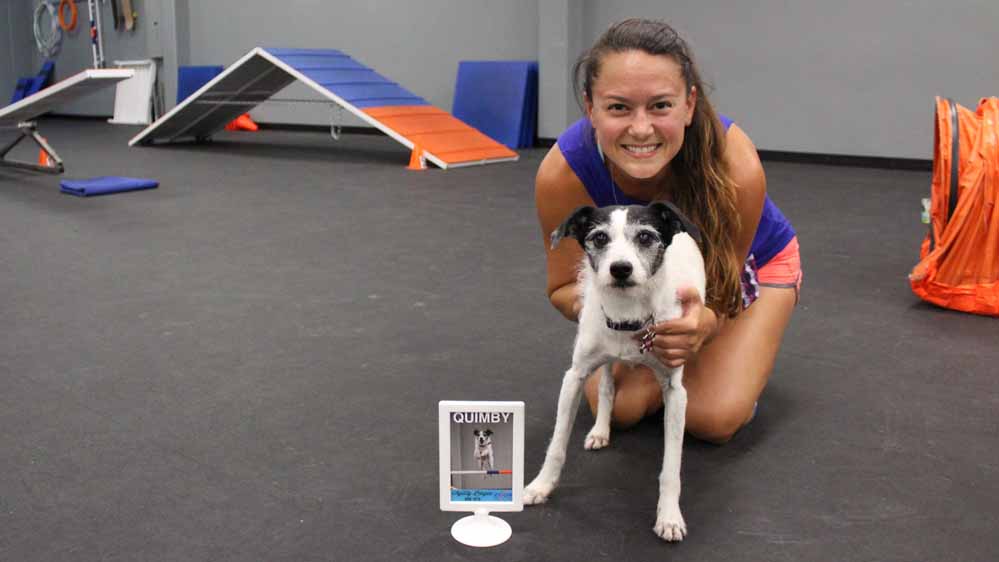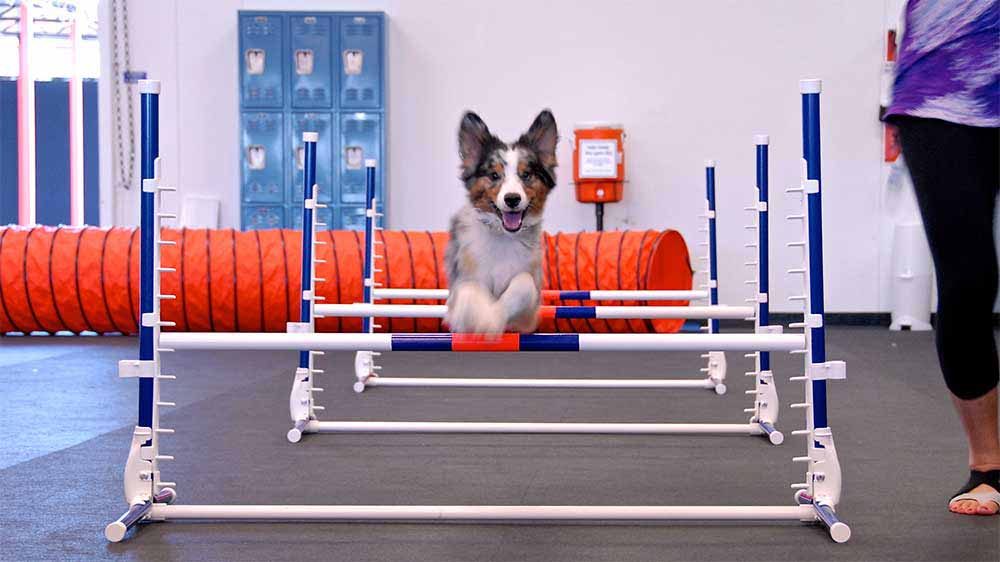What to Expect from a Board and Train Program for Your Dog
What to Expect from a Board and Train Program for Your Dog
Blog Article
Comprehending the Significance of Pet Training in Forming Actions
Recognizing the relevance of pet training is important for fostering favorable behaviors that enhance the partnership in between pets and their owners. The ramifications of training extend past plain obedience; they touch upon the psychological wellness of the canine and the dynamics of human-animal communications.
Benefits of Pet Training
One of the main benefits of canine training is the establishment of a strong bond between the pet and its owner, which can considerably improve the pet-owner partnership. Educating fosters communication, understanding, and trust in between the 2, consequently producing an extra harmonious living environment.
In addition, qualified pet dogs are more probable to display desirable habits, making them easier to manage in various scenarios. This not only profits the owner but additionally adds to the canine's overall wellness. A trained pet is often much more certain and less anxious, as it comprehends what is anticipated of it and really feels safe in its function within the house.
In addition, canine training can improve socialization abilities, permitting dogs to communicate favorably with various other pet dogs and individuals. This social exposure lowers the chance of fear-based responses and hostility, promoting an extra relaxed presence in area settings.
Furthermore, consistent training regimens can stimulate a canine's mental faculties, decreasing dullness and destructive actions. In recap, the benefits of pet training expand beyond plain obedience; they include psychological enrichment, enhanced habits, and improved lifestyle for both the animal and its proprietor.
Typical Behavioral Problems

Leaping on guests can develop uncomfortable situations and may indicate a lack of impulse control or excitement. Aggression, whether towards various other animals or people, is probably one of the most severe behavior issue, usually rooted in fear, territoriality, or not enough socialization.
Other common troubles consist of separation anxiousness, where canines show distress behaviors when left alone, and chain pulling, which can hinder pleasurable walks. These behavior difficulties not only impact the dog's wellness yet likewise stress the owner-pet connection. Identifying the source of these concerns is essential for reliable administration. Recognizing these typical behavioral problems offers a structure for pet owners to look for appropriate remedies, ultimately fostering an extra harmonious living atmosphere for both pets and their households.
Training Methods and Techniques
Addressing usual behavior issues in pet dogs frequently needs effective training methods and methods customized per pet's unique demands. Favorable support is just one of the most extensively backed approaches, stressing the benefit of desirable actions as opposed to punishment for undesirable ones. This technique boosts the bond in between the pet dog and the instructor while fostering a much more relaxed learning atmosphere.
Remote control training is one more reliable approach that makes use of a sound signal to mark the specific minute a wanted habits happens, complied with by an incentive. This specific timing aids pet dogs recognize what is expected of them, bring about quicker knowing end results.
Leash training, crucial for handling a pet dog's habits during walks, can be approached through techniques such as loose-leash strolling, which promotes a tranquil and controlled experience for both the dog and handler.
Socializing training is vital for cultivating appropriate interactions with various other dogs and individuals. Direct exposure to varied atmospheres, seems, and experiences during the puppy phase can dramatically reduce concern and aggression later on in life.
Utilizing a range of strategies makes sure that training continues to be reliable and engaging, inevitably bring about well-behaved dogs and harmonious relationships with their owners.
The Role of Consistency
Consistency plays a critical function in efficient dog training, as it assists strengthen preferred habits and develop clear expectations. When training a dog, it is critical that commands, hints, and rewards are applied consistently by all member of the family and fitness instructors. This uniformity avoids confusion for the pet, making certain that it comprehends what is expected in numerous circumstances.
Inconsistent reactions can result in behavior concerns, as dogs may struggle to decipher what actions are appropriate or rewarded. If a pet dog is awarded for resting on one occasion yet scolded for it the next, the pet may become dizzy and anxious, ultimately threatening the training process.
Utilizing constant spoken commands, hand signals, and benefit systems strengthens the discovering experience. In addition, maintaining a regular training timetable promotes a setting for learning, permitting the pet to expect when training will happen and stay mentally involved.
Eventually, the dedication to consistency not just enhances the performance of training strategies however also grows a feeling of safety and security for the pet. This strategy lays the groundwork for successful long-term therapy and a harmonious relationship between the pet and its owner.
Building a Solid Bond
A strong bond between a pet dog and its proprietor is essential to successful training and overall well-being. This partnership promotes trust and communication, essential components in effective canine training. When pets trust their More Help owners, they are more probable to respond favorably to cues and commands, bring about a much more harmonious communication.
Structure this bond calls for time, persistence, and regular positive reinforcement. Taking part in tasks such as training, play, and workout sessions not just improves obedience however additionally strengthens the emotional connection. Canines prosper on social interaction; consequently, spending top quality time together can substantially enhance their habits and responsiveness.

Ultimately, buying building a solid bond with a dog lays the foundation for efficient training, making certain that both the owner and the pet appreciate a satisfying relationship defined by mutual regard and understanding.
Final Thought
Finally, reliable dog training plays a pivotal function in forming desirable behaviors and fostering a harmonious relationship between animals and their proprietors. By resolving typical behavior issues and utilizing methods such as positive reinforcement and consistency, training not only enhances obedience yet likewise urges socializing and mental engagement. Eventually, the establishment of clear expectations and consistent communication adds to a well-adjusted canine, advertising lasting count on and understanding within the human-animal bond.
Comprehending the importance of pet training is necessary for fostering positive behaviors that improve the partnership between canines and their proprietors.Dealing with common behavioral concerns in dogs often needs effective training methods and methods image source customized to each pet dog's one-of-a-kind requirements.Uniformity plays an essential function in effective pet training, as it aids enhance preferred behaviors and establish clear expectations.A strong bond between a canine and its owner is essential to article effective training and general well-being.In verdict, effective pet dog training plays a critical function in shaping preferable actions and cultivating an unified partnership between pets and their owners.
Report this page